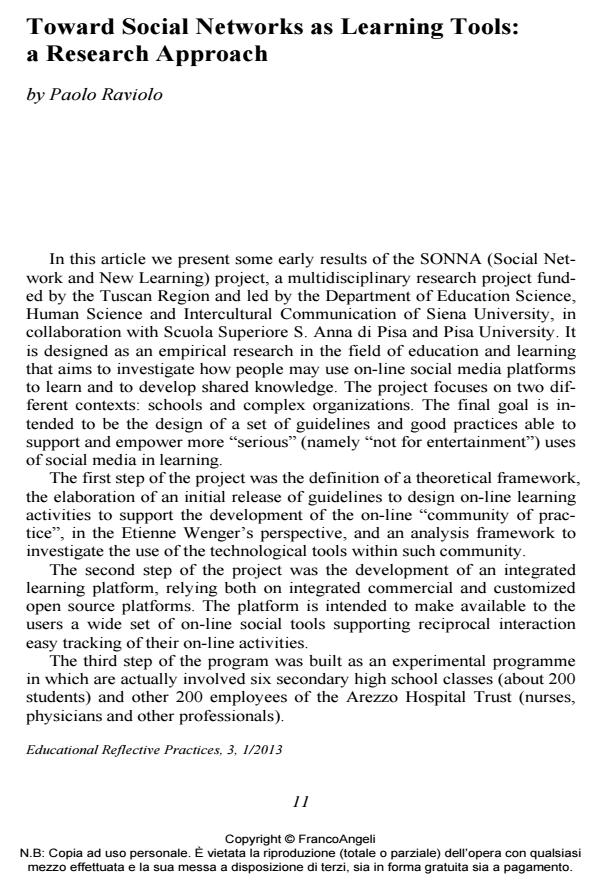Toward Social Networks as Learning Tools: a Research Approach
Journal title EDUCATIONAL REFLECTIVE PRACTICES
Author/s Paolo Raviolo
Publishing Year 2013 Issue 2013/1
Language English Pages 16 P. 11-26 File size 352 KB
DOI 10.3280/ERP2013-001002
DOI is like a bar code for intellectual property: to have more infomation
click here
Below, you can see the article first page
If you want to buy this article in PDF format, you can do it, following the instructions to buy download credits

FrancoAngeli is member of Publishers International Linking Association, Inc (PILA), a not-for-profit association which run the CrossRef service enabling links to and from online scholarly content.
This article presents an overview and some early results of the research project SONNA (Social Network and New Learning). SONNA is designed as an action research in the field of education and learning and it aims to investigate how people may use on-line social media platforms to learn and to develop shared knowledge, in two different contexts: schools and organizations. The project is intended to design a set of guidelines and good practices to empower more "serious" (namely "not for entertainment") uses of social media in learning. We present a brief overview of the research SONNA and some early results from the recruitment questionnaire submitted to the first users involved in a field experimentation in order to understand their attitude toward a serious use of social media as learning tools.
Paolo Raviolo, Toward Social Networks as Learning Tools: a Research Approach in "EDUCATIONAL REFLECTIVE PRACTICES" 1/2013, pp 11-26, DOI: 10.3280/ERP2013-001002